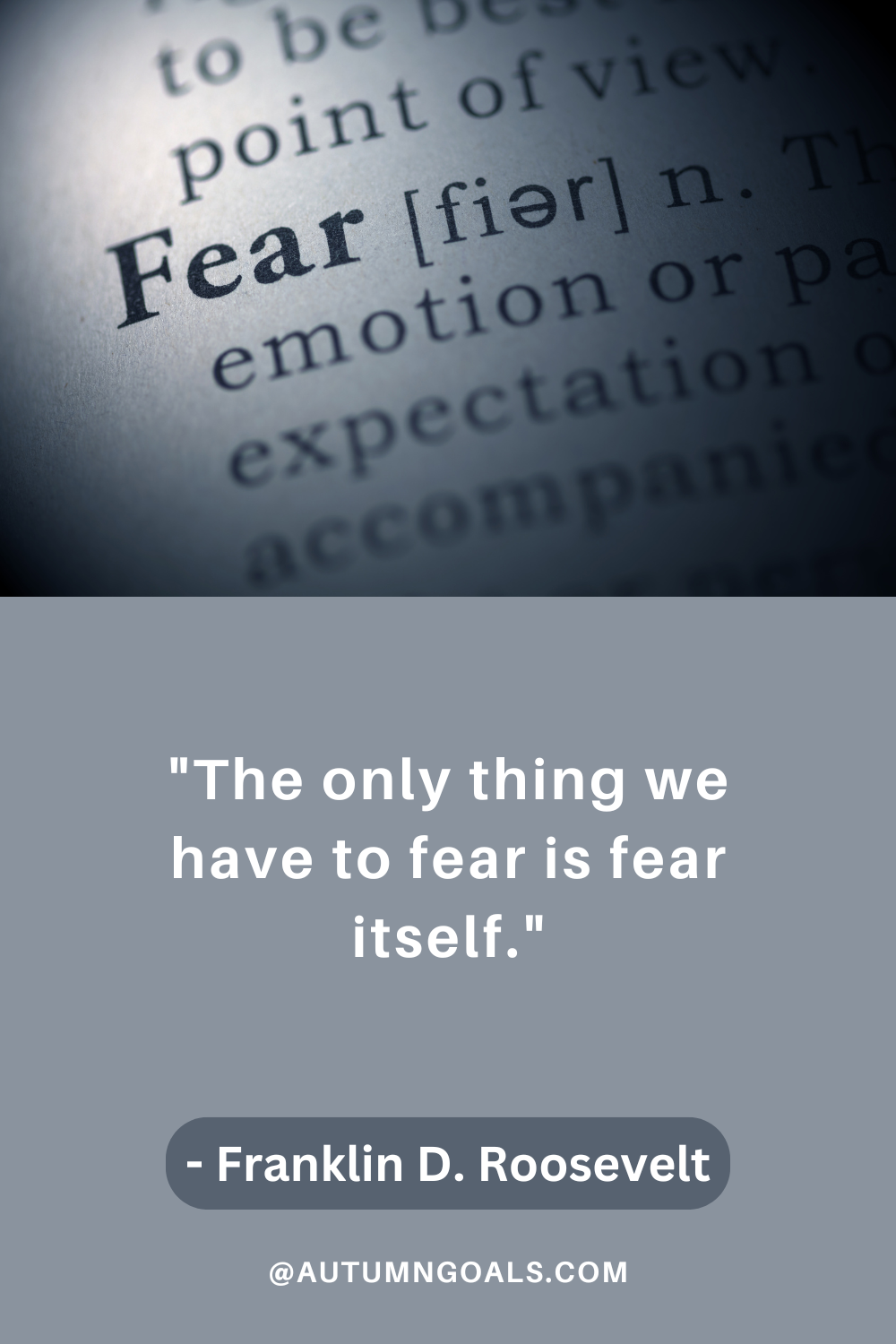Overcoming Fear: Proven Strategies to Conquer Worries
July 7, 2024 | by autumngoals.com

Overcoming fear Photo by Kelly Sikkema on Unsplash
Fear is a natural emotion, a protective mechanism designed to keep us safe from danger. However, fear often transcends its evolutionary purpose, manifesting in ways that hinder our personal and professional growth. Overcoming fear is essential for anyone seeking self-improvement and personal development. This article will explore various strategies to conquer worries, manage fear, and take actionable steps towards a more fulfilling life.
Understanding the Nature of Fear
Before diving into strategies to overcome fear, it’s necessary to understand what fear is. Fear can be both a mental and physical response to perceived threats. While some fears are rational and grounded in reality, others are irrational and stem from anxiety about potential future events. Recognizing the difference between these types of fears is the first step in managing them effectively.
Acknowledging Your Fears
The first step to overcoming fear is acknowledging its presence. Denying or ignoring your fears only allows them to grow stronger. Acknowledge what you’re afraid of and understand that it’s okay to feel fear. Journaling can be a helpful tool in this process. Write down your fears, no matter how trivial or overwhelming they may seem. This act of acknowledgment can reduce the power fear holds over you.
“The only thing we have to fear is fear itself.”
– Franklin D. Roosevelt
Identifying the Root Cause
Once you’ve acknowledged your fears, delve deeper to identify their root causes. Often, fears are symptoms of deeper issues. For instance, a fear of public speaking might stem from a fear of judgment or rejection. Understanding the root cause allows you to address the underlying issue, rather than just the symptom.
Some Techniques to Conquer Fear
Cognitive Behavioural Techniques
Cognitive Behavioural Therapy (CBT) offers various techniques to reframe negative thought patterns that fuel fear. One effective method is cognitive restructuring, which involves identifying irrational thoughts and replacing them with rational ones. For example, instead of thinking, “I will fail, and everyone will laugh at me,” reframe it to, “I have prepared well, and even if I make mistakes, it’s a learning opportunity.”
Gradual Exposure
Gradual exposure is a technique where you slowly expose yourself to the source of your fear in a controlled and systematic way. This method helps desensitize your brain to the fear stimulus over time. Start with small, manageable steps and gradually increase the level of exposure. For example, if you fear public speaking, start by speaking in front of a mirror, then move on to speaking in front of a friend, and eventually in front of a small group.
Mindfulness and Meditation
Mindfulness and meditation are powerful tools in overcoming fear. They help you stay present and reduce anxiety about future events. Mindfulness practices, such as deep breathing and body scans, can ground you in the present moment, reducing the power of fearful thoughts. Regular meditation can also rewire your brain to respond more calmly to stress and fear.
“You gain strength, courage, and confidence by every experience in which you really stop to look fear in the face.”
– Eleanor Roosevelt

Building a Support System
Having a support system can make a significant difference in managing fear. Friends, family, or support groups provide a safe space to share your fears and receive encouragement. Sometimes, just talking about your fears can lessen their intensity. Additionally, others can offer different perspectives and advice on how to tackle specific fears.
Setting Realistic Goals
Setting realistic and achievable goals can help you gradually overcome fear. Break down your larger goals into smaller, manageable tasks. This approach makes the overall objective less daunting and provides a sense of accomplishment as you complete each step. Celebrate these small victories to build confidence and momentum.
Taking Action Despite Fear
One of the most effective ways to overcome fear is to take action despite feeling afraid. Action builds courage and reduces the power of fear. Start with small actions that push you slightly out of your comfort zone. As you build confidence, progressively tackle more challenging tasks. Remember, courage is not the absence of fear but the willingness to act despite it.
“Do one thing every day that scares you.”
– Eleanor Roosevelt

Visualization Techniques
Visualization is a powerful technique where you imagine yourself successfully overcoming your fear. Close your eyes and vividly picture yourself handling the feared situation with confidence and ease. Visualization can help reduce anxiety and prepare your mind for real-life scenarios, making it easier to take action when the time comes.
Seeking Professional Help
Sometimes, overcoming fear requires professional help. Therapists and counsellors can provide tailored strategies and support to manage fear. Techniques such as Exposure Therapy, Cognitive Behavioural Therapy, and EMDR (Eye Movement Desensitization and Reprocessing) are particularly effective for deep-seated fears and phobias.
“Feel the fear and do it anyway.”
– Susan Jeffers

Practicing Self-Compassion
Self-compassion involves treating yourself with kindness and understanding, especially when facing fear. Recognize that everyone experiences fear, and it’s a part of being human. Instead of criticizing yourself for being afraid, practice self-encouragement. Speak to yourself as you would to a friend facing the same situation.
Embracing Failure as a Learning Opportunity
Fear of failure is one of the most common fears that prevent people from taking action. Reframe failure as a learning opportunity rather than a negative outcome. Every failure brings valuable lessons that can guide you towards future success. Embrace mistakes as part of the growth process and remind yourself that each step, even if imperfect, brings you closer to your goals.
Engaging in Positive Self-Talk
Positive self-talk can significantly impact your ability to overcome fear. Replace negative, fear-inducing thoughts with positive affirmations. Remind yourself of your strengths and past successes. Statements like, “I am capable,” “I have faced challenges before,” and “I can handle this” can boost your confidence and reduce fear.
Developing Resilience
Resilience is the ability to bounce back from adversity. Building resilience involves developing a growth mindset, where challenges are seen as opportunities for growth rather than insurmountable obstacles. Cultivate resilience by practicing gratitude, maintaining a positive outlook, and staying flexible in the face of change.
Overcoming fear is a vital component of self-improvement and personal development
By acknowledging and understanding your fears, employing strategies such as cognitive restructuring, gradual exposure, mindfulness, and positive self-talk, you can conquer your worries and take meaningful action. Remember, fear is a natural part of the human experience, but it doesn’t have to control your life. Embrace fear as an opportunity for growth, and you’ll find yourself capable of achieving far more than you ever imagined.
As Franklin D. Roosevelt wisely said, “The only thing we have to fear is fear itself.” By facing our fears head-on and employing effective strategies, we can transform our lives and unlock our true potential. Let’s embark on this journey of overcoming fear together, and step into a future filled with courage, confidence, and endless possibilities.

RELATED POSTS
View all



